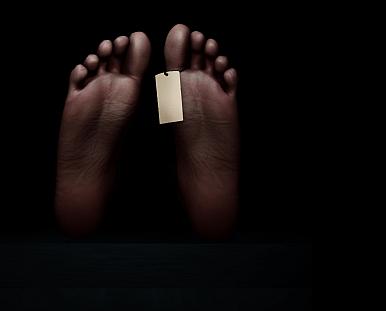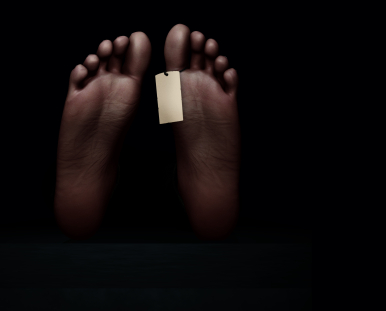A Public Death: Is the HIPAA Patient Privacy Law Being Abused to Bury Government Secrets?

 When I first read that the Vermont Department of Health was blocking access to an autopsy, I thought that either one of two things had happened.
When I first read that the Vermont Department of Health was blocking access to an autopsy, I thought that either one of two things had happened.
1. The reporter made a mistake.
2. The agency was lying.
Levi Duclos, a 19-year-old, died while hiking. His family thinks he might have been saved had Vermont State Police launched a search when the family first called 911. Instead, the agency waited until the next morning. Duclos was found dead, killed by hypothermia.
At the Burlington Free Press, Terri Hallenbeck wrote:
The details of the medical examiner's autopsy on Duclos are not public under federal health privacy laws, Health Department spokesman Robert Stirewalt said.
As far as I know, there is no federal law that bars a state from providing an autopsy report. I have stacks of autopsy reports from numerous states cluttering up my office alongside random items from the hardware store and a fairly good representation of the Blonde Redhead discography.
Never has a medical examiner, coroner, or sheriff told me that they could not release an autopsy report because of federal law. I would think that, were this a common practice, it might even become an election year theme. Can't you just see a super PAC ad with ominous music playing in the background and a gravelly voice intoning, "The government knows where the bodies are buried, but it wants to keep it a secret."?
I asked Vermont for some clarification and, initially, was met with silence. But then Leo Clark, the health department's chief financial officer, wrote me to say:
You asked that VDH provide you with the citation in federal law that we cite when we deny a public records request for an autopsy report. The federal citation is 45 C.F.R. 164.502, which is a provision under the Health Insurance Portability and Accountability Act of 1996 (HIPAA). As further explanation, VDH is a department within the Agency of Human Services. The Agency of Human Services and all departments within that Agency are a "covered entity". This is the reason that we cite 45 C.F.R. 164.502 and do not consider an autopsy report a public record.
As health reporters well know, HIPAA was the greatest gift granted to secret keepers since the advent of Morse code. But it usually is invoked by private hospitals and insurance companies to block reporters from covering something happening to someone who is still alive. "We can't talk about whether the shooting victim you saw wheeled in here a few minutes ago is actually being treated in this hospital because of HIPAA."
Autopsies are usually considered part of a criminal record and medical examiners are often under the jurisdiction of a sheriff or other law enforcement officer. That's why I was surprised that Vermont would cite HIPAA. "Maybe HIPAA banned autopsies from public view and nobody but Vermont bothered to read the fine print," I thought.
So I looked through the citation Clark sent. No mention of autopsies. To get a second opinion, I asked Clem Work. A professor of journalism at The University of Montana, Work is a free speech scholar who teaches a class in the laws that govern the free exchange of ideas in this great country. It was one of the best and most useful classes I have ever taken, and I thought that if anyone could show me how I might have overlooked some nuance of HIPAA that made autopsies a secret, he would be able to. He wrote:
While it's true that an autopsy report can shed light on: "the individual's past, present or future physical or mental health or condition, or the provision of health care to the individual," and would seem to fall within the ambit of the HIPAA privacy rule, the state of Vermont doesn't seem to be a covered health care provider and protecting such a report would be stretching the rationale of "protecting the privacy of people who seek care and healing." Also, if Vermont law requires the public disclosure of autopsy reports, the state could disclose that info without risk of penalty. Autopsy reports, either individually or in the aggregate, can provide very useful information about medical practice standards, health care, morbidity and mortality, and so forth.
Work also noted that Media Law Resource Center in New York analyzed the law and how it was used and specifically called out autopsies as a public record "NOT required to be kept confidential by HIPAA."
In the case of Duclos' death, the autopsy report would provide very useful information about whether another branch of Vermont government adequately performed its duties or, conversely, made a mistake that led to someone's death. As Duclos' family told John Flowers at the Addison Independent:
If we had had the help of a search-and-rescue team, the outcome could have been different. We had trusted that calling 911 was our only option for soliciting search-and-rescue assistance. While the family searched, one and sometimes two state police officers were on the scene at the trailhead (with Levi's car) and stayed all night, but did not participate in the search.
Should a state health department be allowed to claim ownership of autopsy reports and then use that ownership to make them a secret? Let me know what you think in the comments below. Or send a note to askantidote@gmail.com or via Twitter @wheisel.
Related Posts:
A Public Death: Lost Hiker Reveals Flawed Search and Rescue Policy
A Public Death: State Laws Hiding Death Certificates Can Hurt the Living
A Public Death: Records Reveal Endangered Patients In Three States
A Public Death: West Virginia Rules Cause Confusion Over Death Certificates

